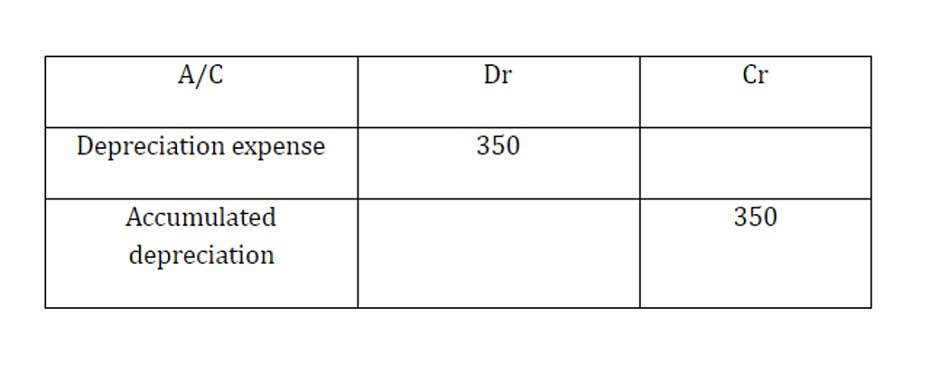
Inaccurate or inconsistent application of exchange rates can result in significant discrepancies. Furthermore, fluctuations in currency values during the reporting period may add another layer of complexity to reconciliation efforts. Large organizations often process thousands of intercompany transactions monthly. Managing this volume manually becomes overwhelming, leading to delays and potential errors. The repetitive nature of the process also Suspense Account increases the likelihood of overlooked discrepancies, especially when teams are working under tight deadlines.
- Handling thousands of entries within tight financial close deadlines often feels unmanageable for accounting teams.
- This makes it significantly easier to perform reconciliations, as all the data is readily accessible in one spot, and often in a standardized format.
- For multi-entity organisations, this process is vital for maintaining the integrity of the financial data and preventing double entries across these different subsidiaries.
- When there are discrepancies, you can use the built-in communication features for messaging and notifications.
- They seamlessly integrate with ERPs and other financial systems, ensuring real-time transaction visibility across all entities.
Oracle Intercompany Transaction Summary Report
Analytics tools give financial insights that help track transactions across different parts of the business. Studies show that using data analytics boosts reconciliation processes for many finance leaders. Intercompany reconciliation is key for checking financial deals between different parts of a company. Knowing about intercompany reconciliation helps in making financial reports right and managing money well. Lists the processing results of the Prepare IntercompanyReconciliation Reporting Information program.
Account Receivable

Systems built more than a decade ago cannot protect a modern, hyperconnected financial environment. They are continuously learning frameworks that adapt to new threats with every case reviewed. This includes unusual spending, unknown device access, rapid transactions, or location mismatches.
Best Practices in Intercompany Reconciliation
Includes informationabout the intercompany receivables and intercompany payables accountssummarized by journal source. Intercompany Reconciliation processautomatically runs this report. Includes informationabout the intercompany receivables and intercompany payables accountssummarized by period. Intercompany Reconciliation process automaticallyruns this report.
- Transactions recorded in different accounting periods are a common issue, particularly when entities operate in different time zones or follow varying fiscal calendars.
- This topic includes information about theintercompany reconciliation reports.
- Lease agreements with intricate terms, such as variable payments or renewal options, make reconciling balances even harder.
- Indicate the legal entity of the receiver organization.Select the legal entity receiver for the reconciliation extract process.
- Here are ten proven practices that can help transform your reconciliation workflow from a complex challenge into a streamlined process.
- You know how it’s easier to find things when they’re all in one place?
Intelligent financial automation solution

This allows finance teams to track transactions and address discrepancies as https://www.bookstime.com/ they arise. It involves cross-checking all transactions between the parent company and its divisions. This ensures the financial reports reflect the company’s true financial situation. It also helps avoid issues, such as counting the same transaction twice.
Intercompany reconciliation involves matching and eliminating financial transactions between two or more entities within the same corporate group. It ensures that transactions—such as loans, sales, purchases, or shared expenses—are consistently recorded across all involved entities. These patterns require solutions that recognise behaviour, understand typologies, and react in real time. This is why modern fraud detection systems integrated with AI are becoming essential for Malaysian risk teams. Intercompany reconciliation is no small feat, but it’s an essential process that offers more than just compliance with regulations.
- Automated intercompany reconciliation brings many benefits to financial processes in organizations.
- The repetitive nature of the process also increases the likelihood of overlooked discrepancies, especially when teams are working under tight deadlines.
- Intercompany accounts reconciliation is the process of making sure that these transactions are accurately recorded and balanced across all the related companies.
- This allows management to make informed decisions about resource allocation and investment opportunities.
- Reconciliations do not just apply to the straightforward exchange of products, and it’s essential to understand that they must be performed on all intercompany payables and receivables.
- This includes unusual spending, unknown device access, rapid transactions, or location mismatches.

If both the parent company and the subsidiary record these steps appropriately, the transactions will cancel each other out, and they will successfully complete the reconciliation. Timely, clear communication between entities is critical to effective reconciliation. Collaboration can be hindered by misunderstandings, time zone differences, language barriers, and varying levels of financial expertise. Without a structured communication process or a shared platform for managing discrepancies, delays in resolution are common and can jeopardize month-end or year-end close deadlines.

The finance teams are also allowed to focus on more strategic tasks. If a parent entity fails to perform these reconciliations correctly they are at risk of non-compliance with accounting standards, potentially resulting in financial and regulatory consequences. Intercompany reconciliation is required to ensure accurate financial reporting and eliminate discrepancies between transactions recorded by different entities within the same organization.

Business Scenario
As companies grow worldwide, it’s vital to record transactions the same way everywhere. intercompany reconciliation This helps avoid mistakes that could make a company look financially unhealthy. It’s vital for following rules and making financial reports clear. With complex financial dealings, good reconciliation can cut down on errors by up to 30%. This makes it a key area for companies wanting to be efficient and open in today’s market.
